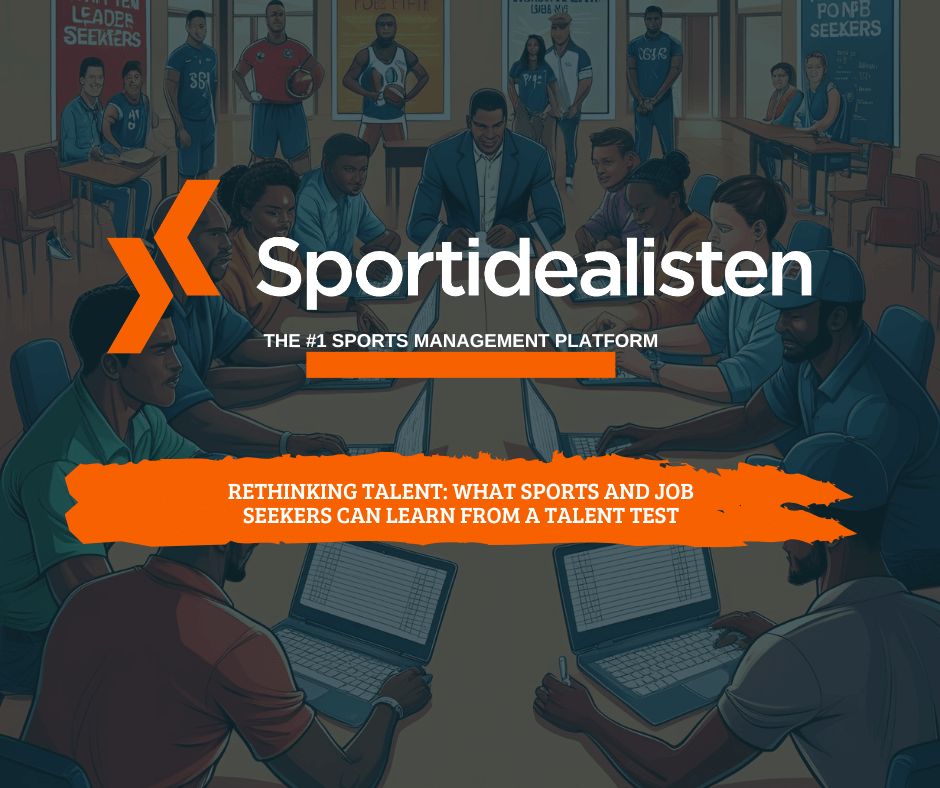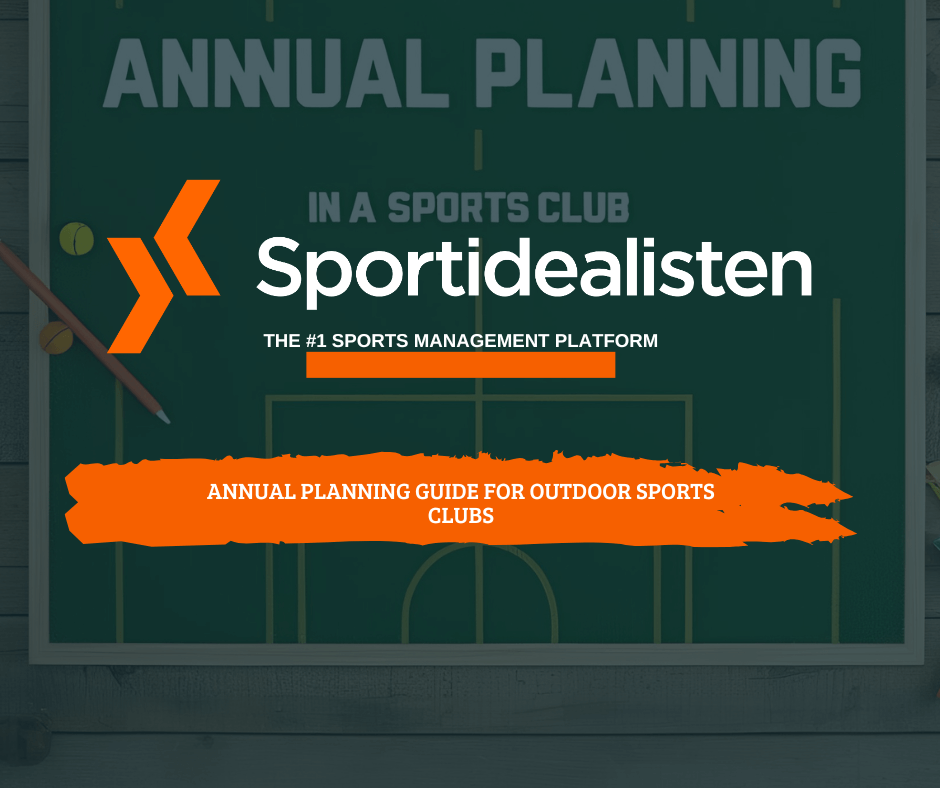Struggling to break into the sports industry? Here are actionable steps to increase your chances of getting responses, interviews, and offers.
You’ve tailored your resume, written engaging cover letters, and looked through the internet for opportunities in sports organizations. Yet, you’re still not landing that dream role. Why?
The sports industry has unique challenges — competitive markets, niche roles, and a reliance on networking. The problem and the solution could be simpler than you think. Let’s explore why you’re not getting hired and what you can do today to change that.
Common Issues Holding You Back
- Your Job Search Isn’t Focused Enough.
- Your Resume or Application Needs Work
- Your Resume Isn’t Getting Past Hiring Systems
- You Haven’t Told People You’re Job Searching
- You’re Not Engaging Recruiters
- You Aren’t Fully Prepared for Sports-Specific Interviews
- You’re Not Leaving a Memorable Impression
- Your Personal Brand Doesn’t Reflect Your Goals
If You’re Not Getting Interviews
Problem 1: Your Job Search Isn’t Focused Enough
In the sports world, applying broadly can backfire. Sending out generic applications to roles as varied as marketing assistant at a fitness brand and operations manager at a football club won’t work.
Solution: Specialize and target niche boards. Focus on roles that align with your skills and interests. Instead of using generic job boards, leverage platforms specific to the sports industry. Examples include Sportidealisten (great for team and league roles) and LinkedIn’s Sports Industry network.
Actionable Tip: Create a list of target organizations (e.g., local sports clubs, governing bodies, fitness brands) and tailor each application.
Problem 2: Your Resume or Application Needs Work
Hiring managers in sports often look for practical, results-oriented achievements — not just general qualifications.
Solution: Quantify and tailor your achievements. Include measurable outcomes, like “increased ticket sales by 25% during the 2023 season” or “executed a sponsorship deal worth $50,000 for a local football tournament.”
Actionable Tip: Use the format [Action Verb] + [What You Did] + [Result]. For example: “Developed community outreach programs that grew youth sports participation by 40%.”
Also, proofread thoroughly. Spelling errors or poor formatting can get your resume tossed out, especially in roles requiring precision (e.g., data analytics for teams). If you think you have looked through all spelling errors etc, check with a friend or ChatGPT (ask the ai support to look through spelling errors etc of your application).
Problem 3: Your Resume Isn’t Getting Past Hiring Systems
Applicant Tracking Systems (ATS) are common, even in the bigger sports organizations.
Solution: Use keywords and simple formatting. Include keywords from the job description, like “player development,” “event coordination,” or “sponsorship management.” Stick to ATS-friendly formats: no images, fancy fonts, or graphics.
Actionable Tip: Save your resume as a .docx file (not PDF, unless specified) and test readability by uploading it into an ATS checker online or on ChatGPT.
If Networking Is Your Weak Spot
Problem 4: You Haven’t Told People You’re Job Searching
The sports industry thrives on connections. Not letting your network know you’re available is a missed opportunity.
Solution: Announce and engage. Post on LinkedIn about your job search and attend industry-specific events like sports career expos. Reach out directly to contacts who work in organizations you admire, such as alumni from your university who are active in the sports sector.
Actionable Tip: Message team managers, event coordinators, or recruiters on LinkedIn. Use a personalized message like, “Hi [Name], I admire [specific project/achievement]. I’m exploring roles in [field] and would value any advice or leads.”
Problem 5: You’re Not Engaging Recruiters
Recruiters in sports fields often manage multiple openings simultaneously. Waiting for them to find you isn’t effective.
Solution: Be proactive. Seek out sports-specific recruiters or staffing agencies. Build relationships by commenting on their posts, engaging with their job ads, and directly inquiring about openings.
Actionable Tip: Set up LinkedIn alerts for recruiters posting roles in the sports industry. Send concise follow-up messages if you’ve applied but haven’t heard back.
If You’re Struggling in Interviews
Problem 6: You Aren’t Fully Prepared for Sports-Specific Interviews
Interview questions in sports roles often include scenarios specific to teamwork, leadership, and adaptability under pressure.
Solution: Anticipate behavioral questions. Prepare answers to questions like, “How would you manage event logistics during an unforeseen delay?” or “Tell us about a time you led a successful sponsorship pitch.” Use the STAR method (Situation, Task, Action, Result) to structure responses.
Actionable Tip: Research the organization thoroughly. Know their latest wins, challenges, and industry position. Impress by mentioning specific programs or partnerships they’ve been involved in.
Problem 7: You’re Not Leaving a Memorable Impression
In the sports industry, passion is as critical as skills. Failing to convey enthusiasm for the organization’s mission can hurt your chances.
Solution: Show enthusiasm and unique value. Tailor your closing statement to emphasize your dedication. For example: “I’m deeply passionate about growing youth sports participation, and I believe my background in event planning and coaching aligns perfectly with your goals.”
Actionable Tip: Follow up after the interview with a personalized thank-you email, referencing something discussed in the conversation.
If You’re Getting the Wrong Offers
Problem 8: Your Personal Brand Doesn’t Reflect Your Goals
If you’re getting offers for unrelated roles, your resume or online profiles may be misaligned.
Solution: Rebrand strategically. Highlight relevant skills, such as “athlete management,” “sports marketing,” or “event operations.” Take online courses if necessary to bridge skill gaps (e.g., sports analytics on Coursera).
Actionable Tip: Rewrite your LinkedIn headline to specify your career aspirations: “Aspiring Sports Marketing Professional | Passionate About Athlete Branding.”
Final Advice: Patience and Persistence
The sports industry is competitive, and roles often take time to secure. In the meantime:
- Volunteer at local sports events or clubs to build connections and gain experience.
- Freelance or take short-term contracts in related fields, such as event management or fitness marketing.
- Stay consistent in your applications and networking efforts.
Breaking into the sports industry can be tough, but with focus, persistence, and strategic effort, you can land your dream role. Good luck!
If you liked this article, may want to read these:
How to create a great sports job application
How to use LinkedIn to find a job in sports
Four great tips for your cover letter in the sports industry






1 thought on “Why You Can’t Land a Job in the Sports Industry (And How To Fix That)”